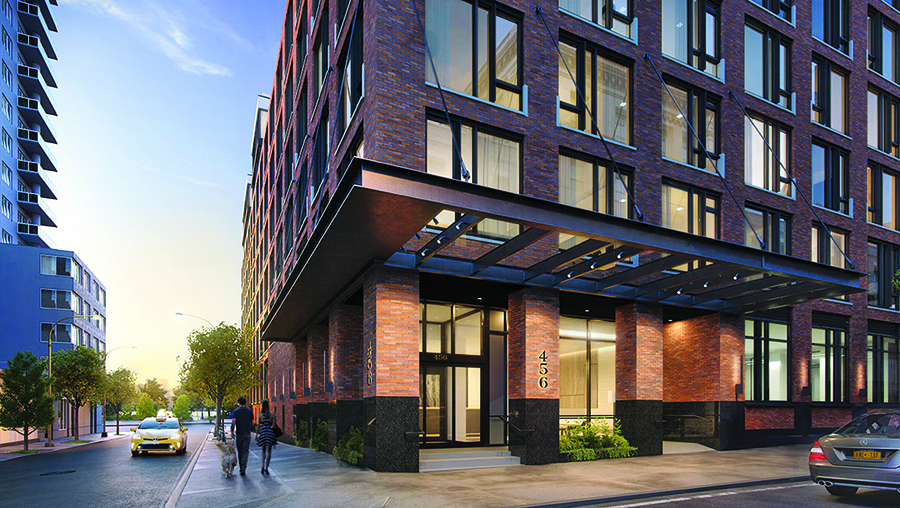As predicted, building trades and developers in New York City could not agree by Jan. 15 on a deal to set prevailing wages on residential construction to continue the city’s 421-a tax abatement program—a key catalyst for affordable housing to be built.
Talks between the Building and Construction Trades Council and the Real Estate Board of New York had been ongoing since last summer, when the 421-a incentive program expired, and was given a short term extension so a new permanent deal could be crafted that would stay in effect through June 2019. The incentive program was set to end if there was no deal by Jan. 15.
Gov. Andrew Cuomo has been a proponent of the prevailing wage requirement for rental buildings with 15 or more units and would expand to condos, according to local online publication DNAInfo. The 421 subsidy totalled $1.5 billion in 2015, says another real estate media outlet, The Real Deal.
But one construction industry executive who declines to be identified claimed that developers and a number of construction firms object to a mandated prevailing wage, contending that "the major issue is whether labor can deliver enough cost savings to offset the rise in prevailing wages. I don't think they've done it."
"Anyone I talk to is not confident there will be an agreement," added the executive, noting the growth of nonunion market share in the city. "The real estate guys would rather forgo it."
“Unfortunately, despite a good faith effort by all parties, REBNY and the Building Trades were unable to come to a final agreement on the renewal of a 421-a program that would provide good wages to construction workers across the city," said a statement by Gary LaBarbera, head of the building trades council. "We remain ready to engage with all stakeholders in the weeks and months ahead to achieve our goals of creating needed affordable housing and middle class jobs for New Yorkers.”
REBNY President John H. Banks, III claimed that without a 421-a-like program, "one can’t build multi-family rental housing with a significant below-market, or affordable, component on a scale necessary to address the city’s needs." He also noted the group's commitment to "fashion a program that will produce the affordable housing" needed in New York that also "ensures construction workers are treated fairly."
REBNY says that the exemption, in effect since the 1970s, has led to creation of "60% of affordable, or below-market, units citywide."
Unions disputed, however, a Jan. 11 independent city budget report that claims mandated prevailing wages in the 421-a incentive program would add $2.8 billion to the cost of city Mayor Bill De Blasio's plan to build 80,000 new units of affordable housing.
"The report does not even factor into consideration the massive tax breaks developers receive under the 421-a program which would reduce any construction cost differential considerably," said Gary LaBarbera. building trades council president, in a statement. "We firmly believe that since developers are receiving public funds, they have a responsibility to pay good wages with benefits and ensure safe worksites, unlike what the majority of affordable housing contractors do today."
The unions point to a report by the New York State Fiscal Policy Instititute, which claims to be nonpartisan but was characterized b the Wall St. Journal as "left leaning," that says the city's analysis "is flawed and should not be used to inform public policy decisions regarding the relative costs of affordable housing construction by union vs. non-union contractors." According to the institute, the city's "data set pertains to final 'budgeted' rather than 'actual' construction costs, and union status is not included as a variable in its analysis."
New York real estate attorney Kenneth K. Fisher of Cozen O'Connor speculated on what steps might be taken now.
"Some people think the legislature will move quickly to enact a stop gap measure," he said. "I think it's more likely that it will take until the end of the session in Albany, or even next year so members don’t have to vote until after their re-election. That would allow a real sense of whether new [building] permits drop, and where."
According to Fisher, "the tax burden will impact the market unevenly. Very high end condos will still be built, and 100% affordable buildings, but everything else will be very very tough. Property taxes could be one-third of operating income, and many buildings can’t carry that. It's unclear, however, how many can cover 25-30% affordable in otherwise market buildings if they do make a deal and wages go up."






